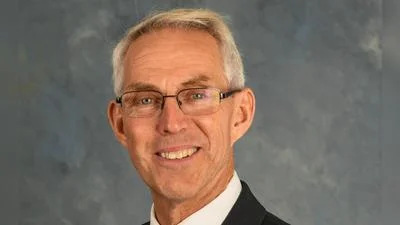Gerrymandering is the greatest form of voter suppression there is, according to House hopeful Dan Caulkins.
“With all the talk you hear about voter suppression and the will of voters not being done, you would think someone would step in to put an end to this,” Caulkins, who recently launched his campaign to replace retiring Rep. Bill Mitchell (R-Forsyth) in the 101st District, told the Macon Reporter. “This is something that is harmful to all voters. It allows politicians to pick voters, rather than citizens picking politicians.”
A bipartisan coalition of 65 lawmakers in eight states is pushing to curtail gerrymandering by backing an amicus curiae brief in the Gill v. Whitford case in the U.S. Supreme Court.

Dan Caulkins
Reps. Bob Pritchard (R-Hinckley), Scott Drury (D-Highwood), Michael Fortner (R-West Chicago), Jeanne Ives (R-Wheaton) and David Olsen (R-Downers Grove) have joined Sens. Michael Connelly (R-Naperville), Karen McConnaughay (R-St. Charles),William Brady (R-Bloomington), Dan McConchie (R-Hawthorne), Chris Nybo (R-Elmhurst), Dale Righter (R-Mattoon), Chapin Rose (R-Mahomet), Sue Rezin (R-Morris), Heather Steans (D-Chicago), Dave Syverson (R-Rockford), Jil Tracy (R-Quincy) and Chuck Weaver (R-Peoria) in signing the brief.
Political gerrymandering is defined as the act of drawing up legislative districts for partisan advantage. The Wisconsin case concerns a redistricting dispute in which a U.S. district court found that the state violated certain protections provided by the First Amendment and the Equal Protection Clause of the 14th Amendment.
The other states involved in the action are Wisconsin, Ohio, Michigan, Pennsylvania, North Carolina, Rhode Island and Maryland.
“People in Illinois are frustrated, and people in my district are really frustrated,” Caulkins said. “This practice creates safe districts, which ultimately leads to politicians feeling as if they no longer have to fight to represent the more moderate position.”
In the 101st District, Caulkins said places like Decatur are split into two safe zones.
“Where I’m running, the last Republican incumbent got 70 percent of the vote, and the other side of the district is controlled in the same way by a Democrat," he said. "People in those districts that are not in the majority don’t feel like they have a real voice.”
Caulkins describes House Speaker Michael Madigan's (D-Chicago) 46 years in power, most of them as the state’s top-ranking Democrat, as the perfect example.
“If you we’re a Republican in Madigan’s district, would you go to the polls?” he said. “Perhaps that’s part of the turnout problem we have: People don’t feel like they have a real choice.”
Politico Illinois Playbook recently reported that Madigan has declared plans to remain in office beyond 2020, when redistricting is scheduled.
“Republicans have tried at least twice before to get a fair map drawn, but it was blocked by the Democrats,” Caulkins said. “They blocked it because right now the setup benefits them. I don’t know what Decatur or Bloomington would look like after the process, but we certainly need change.”
Caulkins said if he had his way, Illinois would follow the formula he sees working wonders in Iowa.
“Their map is pretty much designed by computer,” he said. “Certainly, there will be the question of who would be the computer programmer, but there are enough programs out there where we could find a fair map. It’s important that we give all the voters, all the citizens an opportunity to be part of the election process.”
The 101st District spans parts of Decatur and Logan counties.






 Alerts Sign-up
Alerts Sign-up